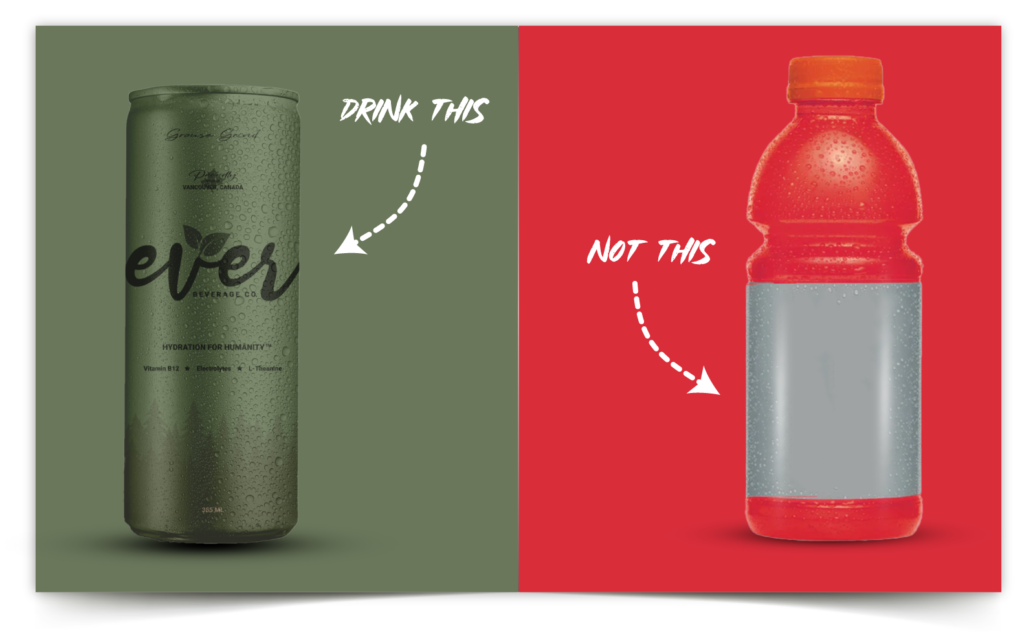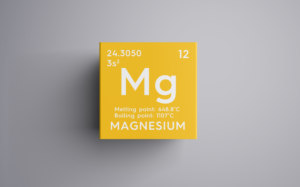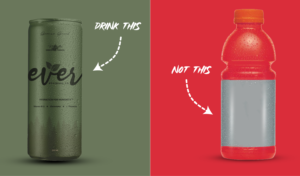
Caffeine has become the lifeblood of productivity for many, a quick fix to banish fatigue and fuel the day. Whether it’s your morning cup of coffee, an afternoon energy drink, or a pre-workout boost, caffeine is deeply ingrained in our daily routines. But behind the immediate buzz lies a less appealing reality—one that health-conscious individuals might want to reconsider.
The negative effects of caffeine, while often overlooked, are well-documented in scientific research. For those who value their health and want to understand how caffeine impacts their body, it’s crucial to examine the science, weigh the benefits, and consider the long-term consequences of regular caffeine consumption.

What is Caffeine and How Does It Work?
To fully grasp the negative effects of caffeine, we must first understand what it is and how it works. Caffeine is a natural stimulant found in coffee beans, tea leaves, cocoa, and many energy drinks. It primarily affects the brain by blocking adenosine, a neurotransmitter responsible for making us feel tired.
When adenosine is blocked, dopamine and norepinephrine levels increase, creating a feeling of alertness. This stimulation of the central nervous system can improve focus and temporarily stave off fatigue. However, this short-term boost comes with significant downsides.
The Energy Drink Craze: A Modern Dependence
Energy drinks, packed with high doses of caffeine, sugar, and other stimulants, have skyrocketed in popularity over the last two decades. Marketed as quick fixes for tiredness and performance enhancers, they appeal to young adults, students, and professionals alike. But energy drinks, which can contain up to 500 milligrams of caffeine per can, are often overlooked as potential health risks.
Studies have shown that frequent consumption of energy drinks can lead to issues like heart palpitations, high blood pressure, and even addiction. Over time, the body builds tolerance to caffeine, requiring increasingly larger doses to achieve the same effects—setting the stage for dependency and withdrawal symptoms when caffeine is reduced or eliminated.
The Immediate Effects of Caffeine on the Body
Many of us have experienced the immediate, short-lived effects of caffeine—improved concentration, increased energy, and even a slight elevation in mood. These effects make caffeine seem like an attractive solution to combat the fatigue that accompanies a busy lifestyle. But the body pays a price for this temporary high.
Increased Heart Rate and Blood Pressure
One of the most concerning immediate side effects of caffeine is its impact on the cardiovascular system. Studies have shown that consuming high levels of caffeine can lead to a temporary increase in heart rate and blood pressure. While this may not be a significant issue for healthy individuals, those with pre-existing heart conditions or hypertension may face more serious consequences.
Over time, the constant strain placed on the cardiovascular system by excessive caffeine consumption can lead to chronic heart problems, including an increased risk of heart disease.
Jitters, Anxiety, and Restlessness
Many caffeine drinkers are familiar with the “jitters”—that shaky, uncomfortable feeling that comes from consuming too much coffee or energy drinks in one sitting. Caffeine is a stimulant, and when consumed in excess, it can overstimulate the nervous system. This overstimulation can result in anxiety, restlessness, and even panic attacks in individuals who are particularly sensitive to caffeine.
This feeling of unease is often exacerbated by the fact that caffeine has a half-life of about 5 hours, meaning that even long after you’ve had your last sip of coffee, its effects can linger in your body, making it harder to relax and unwind.
Disrupted Sleep Patterns
One of caffeine’s most notorious effects is its ability to disrupt sleep. While it might help you power through the day, its lingering presence in your system can interfere with your ability to fall asleep at night. Caffeine can reduce both the quantity and quality of sleep by blocking adenosine receptors that promote restfulness. This creates a vicious cycle—poor sleep leads to increased fatigue the next day, prompting the need for more caffeine to stay awake, which then leads to more disrupted sleep.
According to a study published in the Journal of Clinical Sleep Medicine, consuming caffeine even six hours before bedtime can significantly reduce sleep quality, leading to daytime drowsiness and decreased cognitive performance.
👉 Continue Reading: The Dark Side of Energy Drinks: Understanding the Risks
Long-Term Health Risks Associated with Caffeine
The negative effects of caffeine are not just limited to the short term. Over time, excessive caffeine consumption can have a detrimental impact on your long-term health, contributing to conditions that are difficult to reverse.
Digestive Issues
One of the lesser-known side effects of caffeine is its impact on the digestive system. Caffeine increases the production of stomach acid, which can lead to acid reflux, indigestion, and other gastrointestinal problems. Individuals with sensitive stomachs or conditions like irritable bowel syndrome (IBS) may find that regular caffeine consumption exacerbates their symptoms.
Additionally, caffeine is a diuretic, meaning it increases urine production and can lead to dehydration if not countered with adequate water intake. Dehydration can cause headaches, dizziness, and in severe cases, kidney damage over time.
Bone Health and Osteoporosis Risk
Emerging research has suggested that caffeine may negatively affect calcium absorption, which is critical for maintaining healthy bones. A 2014 study published in Osteoporosis International found that excessive caffeine intake is associated with a decrease in bone mineral density, increasing the risk of osteoporosis—particularly in older adults and postmenopausal women.
For those who consume energy drinks or coffee daily, it’s important to monitor calcium intake and ensure that it meets the recommended daily allowance, as calcium depletion can lead to fragile bones and a higher likelihood of fractures later in life.
Addiction and Withdrawal
One of caffeine’s most insidious effects is its ability to cause physical dependence. Regular, long-term caffeine consumption alters brain chemistry, leading to a tolerance where the body requires more caffeine to achieve the same stimulating effect. When a regular caffeine user suddenly reduces their intake, they may experience withdrawal symptoms, including headaches, irritability, fatigue, and difficulty concentrating.
The World Health Organization (WHO) has classified caffeine dependence as a disorder, emphasizing that it is not merely psychological but rooted in physical changes to brain receptors. This raises the question: is your daily cup of coffee doing more harm than good?
Debunking Common Myths About Caffeine
Despite the growing body of evidence on the negative effects of caffeine, several myths still persist about its benefits. Let’s address a few of the most common:
Caffeine is a reliable energy booster – While caffeine can give you a temporary jolt, it does not provide true energy. Instead, it masks feelings of fatigue by blocking adenosine. Once the caffeine wears off, the fatigue returns, often more pronounced than before.
Caffeine improves athletic performance – While caffeine is often used as a pre-workout stimulant, the benefits are limited to short bursts of activity. For endurance sports, caffeine’s dehydrating effects may actually hinder performance.
Caffeine is harmless in moderation – While moderate caffeine consumption (about 200-400 mg/day) is considered safe for most people, individual sensitivity to caffeine varies. Even small amounts can disrupt sleep patterns, raise blood pressure, or trigger anxiety in susceptible individuals.
Real-Life Example: The Rise of Caffeine-Free Alternatives
In response to the growing awareness of caffeine’s negative effects, there has been an increasing demand for caffeine-free or low-caffeine alternatives. Beverage companies have started offering a wider variety of herbal teas, decaf options, and plant-based energy drinks that provide a gentler, more sustainable energy boost without the crash.
For instance, Ever Beverage Co.—a company focused on health-conscious consumers—has created a line of functional drinks designed to offer hydration and energy through natural ingredients like electrolytes and adaptogens, rather than relying on caffeine. This shift towards healthier, caffeine-free beverages is a testament to the changing attitudes around caffeine consumption.
Is Caffeine Worth the Risk?
Caffeine is undoubtedly a powerful substance, one that can offer temporary benefits but comes with a host of negative side effects. From disrupting sleep to increasing the risk of heart disease, osteoporosis, and addiction, the long-term consequences of regular caffeine consumption cannot be ignored.
For health-conscious individuals, it’s worth considering alternatives and making informed choices about caffeine intake. Whether it’s switching to caffeine-free energy drinks or simply cutting back on that second cup of coffee, your body—and mind—will thank you in the long run.
As the science continues to unfold, one thing is clear: the negative effects of caffeine are not to be underestimated. It’s time to rethink our relationship with this ubiquitous stimulant and prioritize health over habit.





